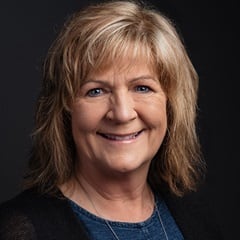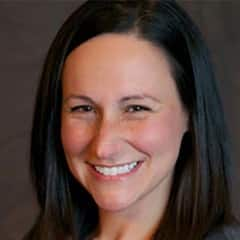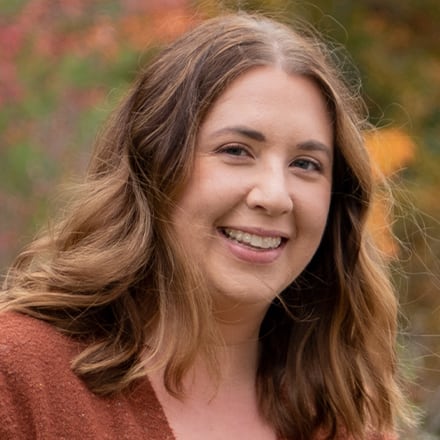The Importance of Health Education

Understanding the numbers
When reviewing job growth and salary information, it’s important to remember that actual numbers can vary due to many different factors—like years of experience in the role, industry of employment, geographic location, worker skill and economic conditions. Cited projections are based on Bureau of Labor Statistics data, not on SNHU graduate outcomes, and do not guarantee actual salary or job growth.
When it comes to creating a thriving community, health education is an integral part. Community health workers collaborate with all stakeholders in a community — from its citizens to its government, education and medical officials — to improve health and wellness and ensure equal access to healthcare.
First, What is Health Education?
According to the World Health Organization (WHO), health education is a tool to improve a population's general health and wellness through promoting knowledge and healthy practices (WHO PDF source).
Although the subject is often taught in school settings, students aren't the only ones who need to know about health. In fact, all age groups and demographics can benefit from health education.
Why is Health Education So Important?
Community health education looks at the well-being of a population, seeking to identify issues and trends and collaborating with partners to find solutions.
The importance of health education impacts many areas of wellness within a community, including:
- Chronic disease awareness and prevention
- Injury and violence prevention
- Maternal and infant health
- Mental and behavioral health
- Nutrition, exercise and obesity prevention
- Tobacco use and substance abuse
![]() Community health educators work with public health departments, schools, government offices and even local nonprofits to design educational programs and other resources to address a community’s specific needs.
Community health educators work with public health departments, schools, government offices and even local nonprofits to design educational programs and other resources to address a community’s specific needs.
“As public health professionals, with aid of community leaders, we strive to ensure community wellness as it pertains to health education,” said Dr. Tanyi Obenson, a public health clinical faculty member at Southern New Hampshire University (SNHU), who holds a PhD in Public Health. “A healthier community is a better community."
How Does Health Education Impact a Community?
Health education can impact communities by addressing relevant issues and concerns locally, such as these three:
1. Healthcare Disparities

In addition to providing educational resources and programming to a community, public health educators also work to ensure all members of a community have equal access to wellness resources and healthcare services.
“When considering care access and delivery within communities, health equity and social justice are one in the same,” said Dr. Natalie Rahming, an adjunct healthcare faculty member at SNHU with almost two decades of experience working in the healthcare field. “The social determinants of health classify the various ways in which an individual’s identity characteristics and social positions are woven into a fabric of discrimination.”
According to Rahming, common health disparities include:
- Gender health disparities
- Racial or ethnic health disparities
- Rural and urban health disparities
- Socioeconomic health disparities
Rahming said racism and other disparities have manifested into unequal distribution of care across distinct groups over many generations.
“A community health worker seeks to abolish or ameliorate health inequity from a social lens, whereas other health care workers approach it at an individual perspective,” she said. “Both are critical for healthcare advancement.”
2. Community Health Education and Government Policy
The importance of health education also extends to policy and legislation development at local, state and national levels, informing and influencing key decisions that impact community health.

From campaigns and legislation to enforce seat belt use and prevent smoking to programs that boost the awareness and prevention of diabetes, public health workers provide research and guidance to inform policy development.
“In alignment to work on policy, community health leaders are needed to support the community with prevention strategies, interventions and programs designed to improve disparities of care based on social, economic, and environmental factors,” said Dr. Toni Clayton, executive director of health professions at SNHU. Clayton holds a PhD with a focus on healthcare and is also vice chairperson of the SNHU Online Institutional Review Board.
“The collaboration of community leaders is essential to form a shared commitment and results-oriented approach to improving the health of our most vulnerable populations,” she said.
3. The Economic Importance of Health Education
![]() Health education can also boost a community’s economy by reducing healthcare spending and lost productivity due to preventable illness.
Health education can also boost a community’s economy by reducing healthcare spending and lost productivity due to preventable illness.
Obesity and tobacco use, for example, cost the United States billions of dollars each year in healthcare costs and lost productivity.
According to the U.S. Centers for Disease Control and Prevention (CDC), obesity costs the U.S. healthcare system almost $173 billion a year. And the total economic cost of tobacco use costs the United States more than $600 billion in direct health care costs and lost productivity every year, according to a 2025 American Lung Association report.
Programs designed to help community members combat expensive health issues boost individuals’ health and provide a strong return on investment for communities.
According to the CDC, states with strong tobacco control programs see a $55 return on every $1 investment, mostly from avoiding costs to treat smoking-related illnesses. The national cost of offering the National Diabetes Prevention Program is about $500 per participant, significantly lower than the $9,600 spent on diabetes care per type 2 diabetes patient yearly.
Find Your Program
How to Become a Community Healthcare Worker
A community healthcare worker's goal is to help others, starting with education.
To begin your career in community healthcare, you'll typically need a minimum of a high school diploma or associate degree. The work done within public health and community healthcare differs from other healthcare fields and impacts communities in different ways, requiring different training and understanding of healthcare.
![]() “Unlike individual healthcare delivery, public health investigates the systems and trends that impact behaviors and outcomes within a community collectively," said Rahming. “This research facilitates the identification of needs and provision of tools to promote disease prevention, individual empowerment and improved wellness that enhances the quality of life for all."
“Unlike individual healthcare delivery, public health investigates the systems and trends that impact behaviors and outcomes within a community collectively," said Rahming. “This research facilitates the identification of needs and provision of tools to promote disease prevention, individual empowerment and improved wellness that enhances the quality of life for all."
Earning your bachelor's degree in public health or community health could help you advance your career and better understand your work. On top of your classroom education, many community health care workers are required to complete on-the-job training. According to BLS, training often covers communication, outreach and information based on your specific community health focus.

Public Health Education: A Growing Field
As the health, social and economic impacts of community health education continue to grow, so does the field of public health and health promotion.
According to the U.S. Bureau of Labor Statistics (BLS), the role of health education specialist is projected to grow by 7% through 2033, faster than the average for all occupations.* BLS states that health education specialists usually need a bachelor's degree but that some health education specialist jobs require you to have a master's degree, too.
![]() Earning your Master of Public Health (MPH) degree could be a proactive way to expand your knowledge and prepare you for a career in the public health education field. Whether you want to be a health education specialist or an epidemiologist, there are a variety of things you can do with your MPH. You can also focus your MPH studies on specific areas, such as global health, by adding a concentration to your degree.
Earning your Master of Public Health (MPH) degree could be a proactive way to expand your knowledge and prepare you for a career in the public health education field. Whether you want to be a health education specialist or an epidemiologist, there are a variety of things you can do with your MPH. You can also focus your MPH studies on specific areas, such as global health, by adding a concentration to your degree.
When considering MPH programs, look for one accredited by the Council on Education for Public Health (CEPH), such as SNHU's. CEPH is an independent agency recognized by the U.S. Department of Education, and their accreditation means that the program has met the standards.
In an accredited MPH program, you can gain the skills you need to lead illness and disease prevention efforts, build community wellness programs and advocate for public health policy.

Whether you decide to pursue an MPH or community health education degree, the public health education field has a wide variety of settings where you may work. According to BLS, these settings include:
- Government organizations and public health departments
- Hospitals and healthcare facilities
- Nonprofit organizations
- Private businesses and employee wellness programs
- Schools and colleges
As communities continue to focus more on improving the health and wellness of its citizens, the field of community health education will also continue to grow, said SNHU adjunct faculty Michelle Gifford.
“I believe that more and more communities are seeing benefits from wellness-related initiatives and receiving positive marks about them,” Gifford said. “Hence, community leaders are seeing this as not just a business-driven necessity, but also something that impacts the well-being and quality of life of their citizens.”
Discover more about SNHU’s bachelor's in community health: Find out what courses you'll take, skills you’ll learn and how to request information about the program.
*Cited job growth projections may not reflect local and/or short-term economic or job conditions and do not guarantee actual job growth. Actual salaries and/or earning potential may be the result of a combination of factors including, but not limited to: years of experience, industry of employment, geographic location, and worker skill.
Danielle Gagnon is a freelance writer focused on higher education. She started her career working as an education reporter for a daily newspaper in New Hampshire, where she reported on local schools and education policy. Gagnon served as the communications manager for a private school in Boston, MA before later starting her freelance writing career. Today, she continues to share her passion for education as a writer for Southern New Hampshire University. Connect with her on LinkedIn.
Explore more content like this article

Academic Spotlight: Dr. Shakera Moreland, Health Sciences Clinical Faculty Member

SNHU Hosts 5th Annual Global Summit for Healthcare Professionals

How to Become a Nurse in 4 Steps
About Southern New Hampshire University

SNHU is a nonprofit, accredited university with a mission to make high-quality education more accessible and affordable for everyone.
Founded in 1932, and online since 1995, we’ve helped countless students reach their goals with flexible, career-focused programs. Our 300-acre campus in Manchester, NH is home to over 3,000 students, and we serve over 135,000 students online. Visit our about SNHU page to learn more about our mission, accreditations, leadership team, national recognitions and awards.


